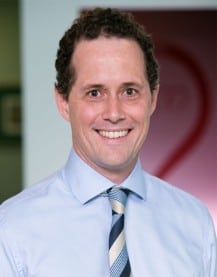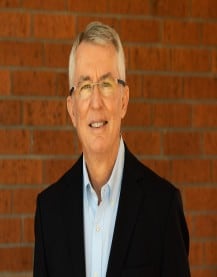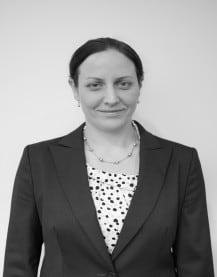Best Cardiologist in Greenslopes

Dr John Hayes
Cardiologist
Dr Robert Perel
Cardiologist
in cardiac electrophysiology and specialises in heart rhythm disorders and cardiac electronic implanted devices.He provides assessment and management of patients with symptoms of arrhythmia, including palpitations,dizziness, slow or fast heart beats and syncope, and patients with heart rhythm disorders, including atrial fibrillation, atrial flutter, supraventricular tachycardia, ectopic beats, ventricular tachycardia, cardiomyopathies, and inherited arrhythmias.

Dr. Vance Manins
Cardiologist
in General Medicine (The Alfred Hospital, Melbourne) then Cardiology (Royal Perth Hospital, Perth). During his time at Royal Perth, Vance gained a great deal of experience with the advanced heart failure and cardiac transplant team, before moving to Brisbane to complete an Echocardiography Fellowship with Hearts 1st. He has been a consultant cardiologist with Hearts 1st since 2012.

Dr. Jeremy Wright
Cardiologist
cardiac imaging. His undergraduate training was at the University of Western Australia with his residency and Cardiology training at Royal Perth Hospital.After an Echocardiography Fellowship at Hearts 1st, he completed a Fellowship in cardiac magnetic resonance imaging (CMR) and computed tomography (CT) at Gasthuisberg University Hospital in Leuven, Belgium.

Dr John Rivers
Cardiologist
failure, valve disease, and all aspects of echocardiography, including exercise stress echocardiography, transoesophageal echocardiography and intraoperative echocardiography for valve surgery. Under Dr Rivers’ direction, QCG has become well recognised for high quality non-invasive testing.

Dr Nghi Mai
Cardiologist
testing services. He is an Associate Lecturer with the University of Queensland and an active Member of the Cardiac Society of Australia and New Zealand. His areas of clinical interest are in transthoracic and transoesophageal echocardiography, exercise stress echocardiography, diagnostic coronary angiography and cardiac imaging including calcium scoring, CT coronary angiography and cardiac MRI

Dr Justin Morze
Cardiologist
moving to Brisbane in 2004. He completed advanced training in Cardiology at the Princess Alexandra Hospital before pursuing a two year Echocardiography Fellowship at Hearts 1st and obtaining specialist recognition in Computer Tomography Coronary Angiography (CTCA).

Dr Williams Parsonage
Cardiologist
at The Royal Brisbane and Women’s Hospital. His clinical interests are in general cardiology, cardiac ultrasound (echocardiography), and the investigation and management of heart disease in pregnancy. Dr Parsonage is a graduate of the University of Nottingham Medical School in the UK, where he commenced cardiology training, and also undertook a clinical research Fellowship.

Dr. Loretta Carr
Cardiologist
and basic physician training years in Toowoomba. It was this experience that influenced her decision to pursue a career in cardiology and return to Toowoomba. She undertook advanced training in cardiology at the Royal Brisbane and Women’s and the Princess Alexandra Hospitals. Following this, she joined Hearts 1st to complete a two-year echocardiography and cardiac imaging fellowship.

Dr. Julie Ch’ng
Cardiologist
in Melbourne. Moving to Queensland in search of sunshine in 2004, Julie joined the Hearts 1st team to complete her Echocardiography Fellowship.
What is cardiology?
Cardiology is the study of the heart, it is a branch of internal medicine that deals with diseases of the heart, the blood vessels near the heart and the blood circulation. A cardiologist is a specialist in internal medicine who has specialized in the treatment of heart disease through additional training. A cardiologist examines the development of cardiovascular diseases and specializes in curing them. These include diseases such as high blood pressure, coronary heart disease, heart attack, heart failure (heart failure) and cardiac arrhythmias.
What is a cardiologist?
Cardiology is a branch of internal medicine as an independent subject. A cardiologist specializes in diagnosing and treating diseases of the cardiovascular system. This specialist area is to be distinguished from the sub-area of cardiac surgery. A cardiologist is not the same as a heart surgeon. This opens the chest and performs heart surgery. The cardiologist, on the other hand, examines and diagnoses cardiovascular diseases and performs interventions such as cardiac catheterization or the insertion of a pacemaker.
What does a cardiologist do?
Cardiologists study, diagnose and treat diseases of the cardiovascular system. They are similar to other doctors in that they have to assess their patients, examine their medical history, and develop a treatment plan. You must also be able to answer patient questions in the cardiology department and communicate with the patient’s family during treatment. As part of the family history, heart attacks, strokes and sudden cardiac deaths are recorded and with regard to the presence of a heart disease, questions are asked about lifestyle (physical activity, alcohol and tobacco consumption, etc.) and the associated risk factors. Many of her professional responsibilities are specifically focused on treating the heart.
Categories
- Allergist (5)
- Anesthesiology (2)
- Cardiologist (288)
- Cosmetic Surgeon (79)
- Dentist (261)
- Dermatologist (48)
- Dermatology (150)
- Endocrinologist (22)
- ENT Specialist (239)
- Family Physicians (1)
- Gastroenterology (121)
- General Practitioner (226)
- General surgeon (37)
- Hepatologist (2)
- Immunologist (4)
- Medical Contributors (259)
- Medical Expenses (2)
- Nephrologist (46)
- Neurosurgeon (91)
- Obstetrician and Gynecologist (18)
- Oncologist (99)
- Ophthalmologist (30)
- Orthopaedic surgeon (87)
- Osteopath (64)
- Otolaryngologist (6)
- Paediatric surgeon (7)
- Paediatrician (5)
- Pathologist (64)
- Plastic Surgeon (285)
- Podiatrist (295)
- Psychiatrist (23)
- Radiologist (17)
- Rheumatologist (7)
- Uncategorized (19)
- Urologist (102)
- Vascular surgeon (6)





